Information Technology
Information technology (IT) refers to the use of computer systems, storage, networking, and other physical devices, infrastructure, and processes to create, process, store, secure, and exchange all forms of electronic data. IT encompasses a wide range of technologies and methods used to manage information, and it plays a crucial role in the modern world.
Key Concepts to Understand in Information Technology
- Computer Systems: Understand the components of a computer system, including hardware (such as the central processing unit, memory, storage devices, and input/output devices) and software (such as operating systems and applications).
- Networking: Learn about the basics of computer networks, including types of networks (LAN, WAN, WLAN, etc.), network protocols, and network security.
- Database Management: Explore the concepts of databases, including database design, management, and querying using SQL.
- Information Security: Understand the principles of information security, including encryption, authentication, access control, and cybersecurity best practices.
- Web Technologies: Familiarize yourself with web development technologies, such as HTML, CSS, JavaScript, and web servers.
- Software Development: Gain an understanding of software development processes, programming languages, and software engineering principles.
Study Guide for Information Technology
Here are some tips for studying information technology effectively:
- Stay Updated: Information technology is a rapidly evolving field, so it's important to stay updated with the latest technologies and trends.
- Hands-On Practice: Try to get hands-on experience with computer systems, networking, and programming. Build projects to apply what you've learned.
- Use Online Resources: Take advantage of online courses, tutorials, and forums to expand your knowledge and seek help when needed.
- Understand Fundamental Concepts: Focus on understanding the fundamental concepts of IT, such as algorithms, data structures, and system architecture.
- Problem-Solving Skills: Develop strong problem-solving skills, as IT often involves troubleshooting and finding solutions to technical issues.
By mastering the fundamental concepts and keeping up with the latest developments in information technology, you can build a strong foundation for a career in IT and contribute to the advancement of technology in various fields.
.◂Biology Worksheets and Study Guides High School. Plant structure and function
Worksheet/Answer key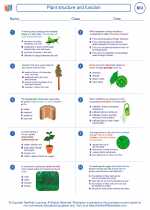 Plant structure and function
Plant structure and function  Worksheet/Answer key
Worksheet/Answer key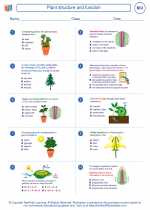 Plant structure and function
Plant structure and function  Worksheet/Answer key
Worksheet/Answer key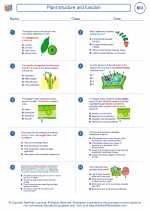 Plant structure and function
Plant structure and function  Worksheet/Answer key
Worksheet/Answer key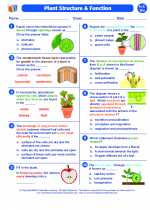 Plant structure and function
Plant structure and function  Vocabulary/Answer key
Vocabulary/Answer key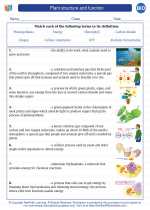 Plant structure and function
Plant structure and function  Vocabulary/Answer key
Vocabulary/Answer key Plant structure and function
Plant structure and function 

 Worksheet/Answer key
Worksheet/Answer key
 Worksheet/Answer key
Worksheet/Answer key
 Worksheet/Answer key
Worksheet/Answer key
 Vocabulary/Answer key
Vocabulary/Answer key
 Vocabulary/Answer key
Vocabulary/Answer key

The resources above cover the following skills:
Concepts of Life Science (SC1, SC2, SC3)
The student demonstrates an understanding of the structure, function, behavior, development, life cycles, and diversity of living organisms by describing the structure-function relationship